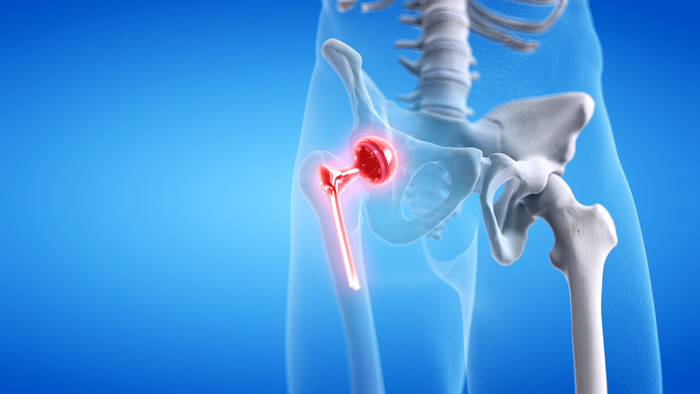Best Total Hip Replacement Surgery in Koramangala, Bangalore
Orthopaedics deals with injuries and diseases of the musculoskeletal system, including bones, joints, muscles, tendons, ligaments and nerves, and are responsible for movement of the body.
Orthopaedic joint replacement is a process of joining the damaged bones, either by removal or replacement, by using a plastic, metal or ceramic device known as prosthesis during a surgery. Prosthesis is designed to replicate the normal joint mobility.
To seek treatment, you can consult the best total hip replacement surgeons in Bangalore. You can also search for total hip replacement surgery near me.

What do we need to know about orthopaedic joint replacement and total hip replacement?
Orthopaedic joint replacement are broadly categorised into the following types, as per the area of surgery:
- Total hip replacement
- Knee replacement
- Total joint replacement (arthroplasty)
- Joint preservation
- Shoulder replacement
The most common type of joint replacement is the total hip replacement. More than 4,50,000 total hip replacements are performed alone in the United States.
Who qualifies for total hip replacement?
Most of the patients who undergo total hip replacements are aged between 50 and 80 years, but orthopaedic surgeons evaluate each patient individually. There is absolutely no weight or age factor for total hip replacements.
Why is hip replacement recommended?
There are multiple reasons why you may need a hip replacement. These include:
- Hip stiffness
- Hip pain limiting usual activities like bending or even walking
- Chronic hip pain that continues even when you are taking rest
- Insufficient pain relief after using walking supports, physical therapy or anti-inflammatory drugs
- Medical evaluations like X-ray and MRI scans indicating significant injury in need of a surgery
What are the causes of hip pain that necessitate hip replacement?
The most common cause of chronic hip pain is arthritis, along with few other reasons listed below:
- Osteoarthritis
- Rheumatoid arthritis
- Osteonecrosis
- Childhood hip disease
- Hip fractures
- Tendinitis and bursitis
What are the types of hip replacement?
The type of hip replacement completely depends upon your medical condition and your doctor's evaluation. An orthopaedic surgeon may evaluate your condition on the basis of your previous medical conditions, X-rays, physical examination and few other tests like MRI scan. There can be two different types of hip replacements:
- Total Hip Replacement: An anterior hip replacement is the latest technique to implant a hip while applying minimally invasive techniques. This allows for the muscle sparing, and not muscle splitting, while using prosthetic components. It also ensures a speedy recovery with hardly any limitations on everyday activities after the surgery.
- Partial Hip Replacement: A partial hip replacement (hemiarthroplasty) involves replacing the femoral head (the ball) only and not the acetabulum (socket). This procedure is used mainly in patients suffering hip fractures. It requires an artificial implantation of the femoral head as the acetabulum is healthy.
When should you consult a doctor for total hip replacement?
You should seek medical attention if you have persistent and prolonged hip pain or even a hip rigidity, not allowing you to be able to perform day-to-day activities.
You can request an appointment at Apollo Spectra Hospitals, Koramangala, Bangalore.
Call 1860 500 2244 to book an appointment.
What are the risks like?
There are some risks associated with the hip replacement, just like any other surgery, such as:
- Infection
- Blood clotting
- Bone dislocation
- Internal bleeding
- Nerve injury
- Loosening of hip implant
- Need for a revision surgery
- However, these risks can surely be avoided if precautions are taken.
Conclusion
Total hip replacement isn’t a dangerous procedure. It will be done if your doctor feels that you absolutely need it. If you notice any of the alarming symptoms as discussed above, consult an orthopaedic doctor for immediate diagnosis and treatment.
A hip replacement is expected to benefit you for 15 to 25 years.
Most patients start walking from the next day and can resume their normal routine life within 3 to 6 weeks of the surgery.
A patient will initially need help for basic tasks like getting dressed. It all depends upon how fast a person recovers from the surgery.
Symptoms
Our Top Specialities
NOTICE BOARD
CONTACT US
CONTACT US
 Book Appointment
Book Appointment


.svg)
.svg)
.svg)
.svg)








